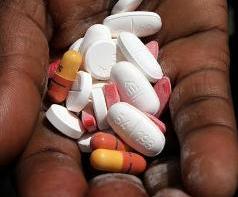Though PEPFAR under Bush certainly made progress in the prevention and treatment of HIV/AIDS, it is important to remember that epidemics such as these do not exist in a vacuum. Rather, the cycle of poverty and illness is one that is self-sustaining, and aid efforts must focus relief on both sides of the equation.
The Obama administration has recognized this and developed something called the Global Health Initiative, which “adopts a more integrated approach to fighting diseases, improving health, and strengthening health systems.” Obama’s 2010 budget brings continued awareness to broader global health issues such as child and maternal health, family planning, neglected tropical diseases, and HIV/AIDS.
Obama’s statement says, “the budget invests $63 billion cumulatively over six years (2009-2014) for global health programs. PEPFAR… will constitute more than 70 percent of global health funding.”
It seems that Bush’s plans neglected an important part of global health and poverty: family planning. Family planning is a difficult topic in much of Africa, where a man’s wealth is measured partly by the size of his family.
Condoms are associated with STDs and with infidelity, so they are very rarely used within a marriage for family planning. Other family planning techniques, such as birth control pills and contraceptive injections, are being promoted.
Another issue that must be addressed is that there is also still some opposition within African governments to the family planning measures.
It is absolutely vital to look at the AIDS crisis in the greater sphere of global health. Hopefully policymakers will continue to take this into consideration when they decide how aid money is spent.

Listen Listen to an interview with a Furman student about her own experiences learning about AIDS while in Africa.
View a slideshow of images showing materials brought back from Porche’s trip to Namibia, South Africa, and Botswana.




